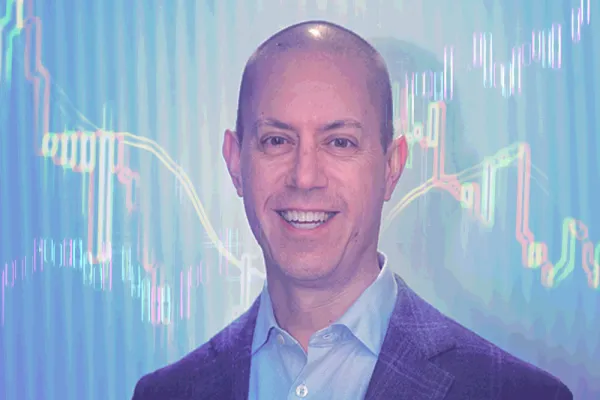Bridgewater Associates, the world’s largest hedge fund firm, is once again at the center of a controversy over its corporate culture. The firm, perhaps best known for its adherence to founder Raymond Dalio’s philosophy of “radical transparency,” is the subject of complaint filed earlier this year with the Connecticut Commission on Human Rights and Opportunities by a former Bridgewater employee, the New York Times revealed on Wednesday.
In the complaint, which the paper obtained via a Freedom of Information Act request, former Bridgewater employee Christopher Tarui described the firm as a “cauldron of fear and intimidation” and alleged that he was repeatedly pressured by a supervisor to have sex with him but was warned by other top managers at the firm to drop the matter when he attempted to report the incidents, which started in May 2014. The Times said it could not independently verify the allegations detailed in the complaint. (Dalio published a lengthy rebuttal to the story on LinkedIn.)
Tarui has been on paid leave from Bridgewater since January 6 of this year, and the complaint was filed two days later, according to the report. He and Bridgewater jointly asked in March to withdraw the complaint, with no reason given by either for the request. (The report says Bridgewater employees are required to settle disputes via binding arbitration per their employment agreements with the firm.) Tarui, 34, had been with the firm for five years, working as an adviser to large institutional investors in the firm’s funds, meeting with large public pension funds, according to the report.
Meanwhile the National Labor Relations Board filed a separate complaint, which the paper also obtained through a FOIA request, alleging that Bridgewater “has been interfering with, restraining and coercing” Tarui and other firm employees from exercising their rights because it forces the to sign confidentiality agreements when they are hired. That complaint said Tarui was suspended from the firm after he threatened to file a charge with the board. Tarui and his lawyer declined to comment to the Times. The Connecticut complaint details “an atmosphere of constant surveillance by video and recording of all meetings” as well as an office patrolled by security guards, with some employees even asked to lock up their personal phones when they arrive at the office, according to the report.
Dalio famously authored his life rules in a 123-page handbook called Principles, which the firms employees are required to read. Employees are encouraged to challenge each other’s ideas to arrive at the truth, regardless of how painful the process may be. The firm has admitted that meetings are routinely videotaped and played back to employees so that they can learn from their mistakes. In a past interview with Alpha, Dalio admitted the firm’s culture isn’t for everyone but likened it to going to the gym — painful at first, but ultimately worth it.
But the Times report, drawing from details of the complaint and interviews with former Bridgewater employees, describes a more foreboding environment. In the complaint Tarui says he kept the incidents of harassment to himself out of fear that the details would become public and would hamper his chances for a promotion. “The company’s culture ensures that I had no one I could trust to keep my experience confidential,” Tarui said in the complaint, according to the report.
In its rebuttal, Dalio noted that the firm has historically been reluctant to engage with the media--as we have reported--but is responding to what it calls specific "distortions" in the article. Dalio declined to comment on the specific allegations mentioned in the story because of "ongoing legal processes and our desire to maintain the privacies of the people involved for fear that they too will be tried in the media through sensationalistic innuendos," but said he is confident the firm handled the case consistently with the law.
As for the allegations that the employee had no outlet at Bridgewater to confidentially report the alleged incidents, Dalio said in the rebuttal that employees have the option of reporting more sensitive matters through an anonymous complaint line and that there is an internal employee relations team that is meant to function as a closed, confidential outlet "outside of the management chain" for handling personal issues. Dalio also disputed the Times story's characterization of Bridgewater's taping meetings as a culture of surveillance, saying it's well known that meetings are taped to enable employees to hear nearly all discussions at the firm for themselves. He added: "We make these tapes available to employees because we believe strongly that in order to have a real idea meritocracy, people need to see and hear things for themselves rather than through the spin of others. We also believe that bad things happen behind closed doors so that such transparency is healthy."
Dalio further disputed that some employees are required to lock up their cell phones when they arrive at the office, saying that most of its employees freely carry their cell phones except on the trading floor, where they are prohibited to protect confidentiality of trades. And he said the firm has historically refused to settle legal matters "even though that is not the expedient thing to do," saying, "Like many organizations, we encounter frivolous claims made in an effort to extract financial gain...We choose to contest them instead. At the same time, we have clear policies and standards of behavior, and when we discover behavior inconsistent with them, we act decisively."
___
Point72 Asset Management founder Steven Cohen is reportedly investing up to $250 million into a new firm, Boston-based Quantopian, that allocates money to amateur quant traders who devise the best computerized trading strategies and gives them a cut of any profits generated, according to the Wall Street Journal. Cohen is also backing the firm via his family office venture arm, Point72 Ventures, with an undisclosed sum, according to the report. The investments come at a time when quantitative investment strategies are becoming ever more popular. About half of the 25 top-earning hedge fund managers on Alpha’s 2016 Rich List produced all or some of their gains using computer-driven strategies.
Quantopian told the paper it has 85,000 users from 180 countries who have created more than 400,000 algorithms on its free, web-based platform. Of that group, Quantopian has selected just ten to trade a few hundred thousand dollars on its behalf, according to the report. Right now the platform just trades U.S. equities, but the firm has plans to expand it to other asset classes. The winning traders so far include a Sydney, Australia-based mechanical engineer, a Denver-based data scientist and a Malta-based consultant with a master’s degree in mineral and energy economics.
___
Alpha may become increasingly elusive in the future, but investors shouldn’t give up on hedge funds just yet, according to a new report from PGIM, Prudential Financial’s global investment management arm. The report asks whether alternative assets including real estate, private equity and hedge funds are worth the risk, despite the fact that they have underperformed equities over the past six years. While PGIM found that no hedge fund strategies showed statistically significant positive alpha in the years since the global financial crisis, the sector is still attractive for investors who know what they’re looking for.
One major issue is that alternative investment strategies tend to be lumped together, which PGIM says prevents investors from understanding the real risk and return implications of different strategies. Funds of funds, equity funds and event-driven funds in particular have the potential to offer better beta for less in fees than more traditional investments, according to the report. PGIM also recommended paying attention to macro and relative value funds, which it said had the lowest risk of drawdowns during the period following the crisis.
___
London-based Toscafund Asset Management posted a hefty 14.7 percent loss in its flagship Tosca fund June as a result of the steep equity market declines that ensued following the UK’s shock “Brexit” vote to leave the European Union, according to a Wall Street Journal report. Toscafund, founded by Tiger Cub Martin Hughes, said in a letter to clients that it thought the vote would be close but that the Remain camp would prevail, adding, “we were not set up well” for the actual result. The fund, managed by Johnny de la Hey, ended June down 21 percent for the year but gained some ground in July, adding 6.5 percent so far this month, the report said. Savvas Savouri, Toscafund’s chief economist, was one of few in the hedge fund industry to argue in favor of Brexit.





